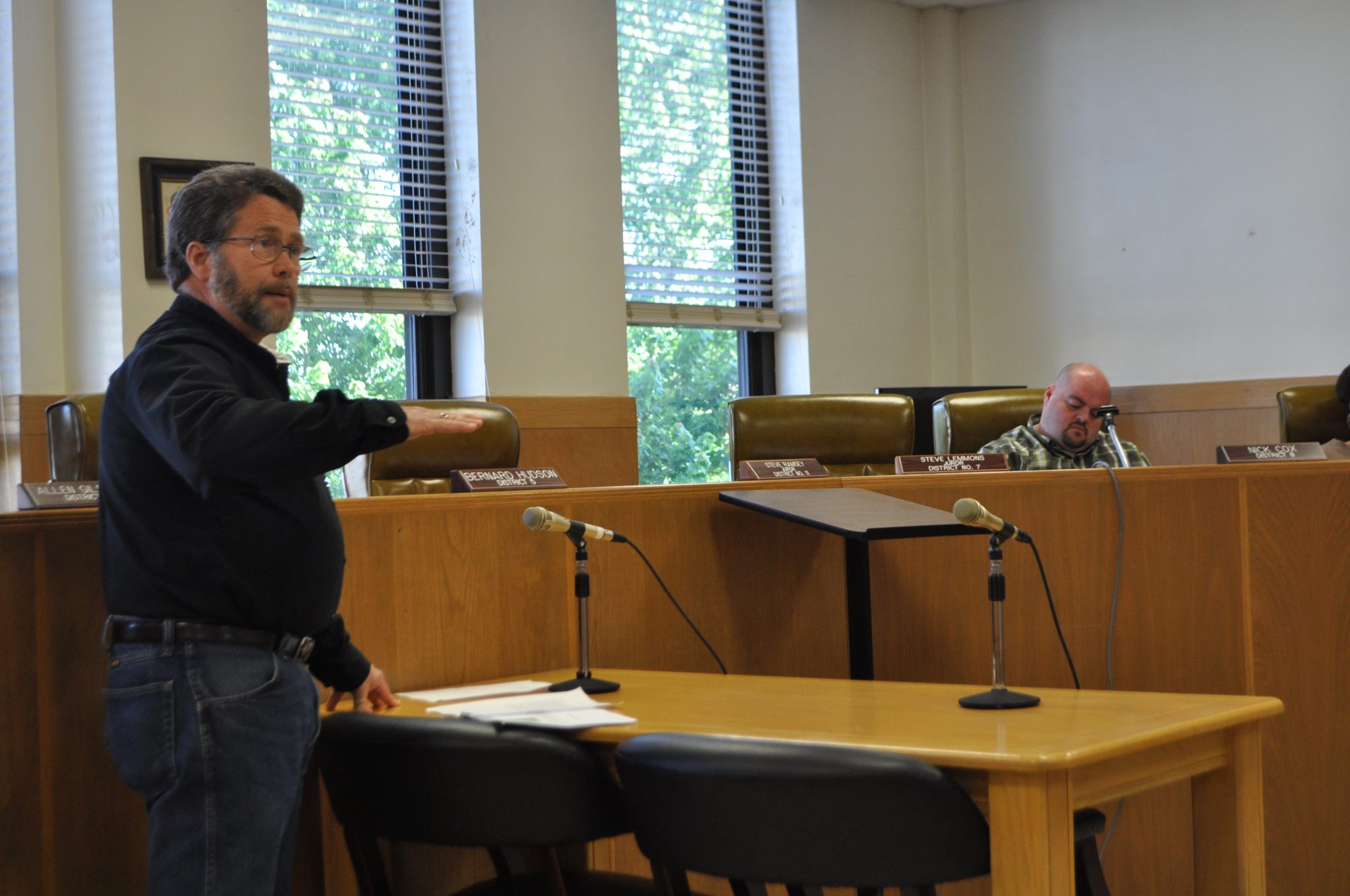180
It’s a tall order and it’s a long shot, Webster Parish Police Juror Nick Cox said, but an initiative to boost economic development and protect the Sparta Aquifer is being studied.
“The longer I’m on the jury, the more I realize that water

Rick Buckner, executive director of the Sparta Groundwater Commission Foundation, presents jurors with a presentation on the Sparta Aquifer Tuesday.
Jurors hear presentation on Sparta Aquifer
previous post


